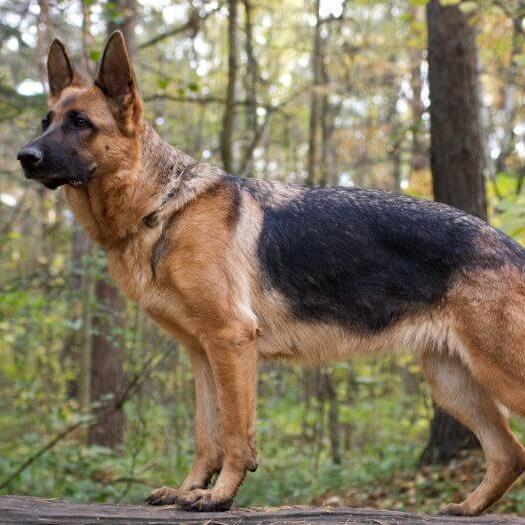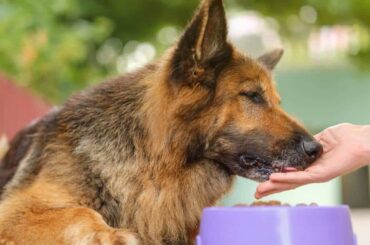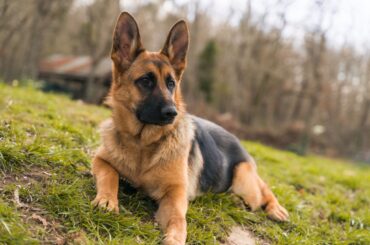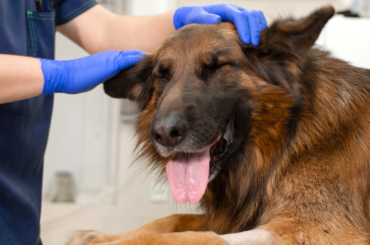The German Shepherd is a remarkable and versatile breed known for its intelligence, loyalty, and agility. Understanding the different life stages of a German Shepherd is crucial for providing optimal care and ensuring a happy, healthy life for your canine companion. From the adorable puppy phase to the golden years of seniority, this comprehensive guide will take you through each stage of a German Shepherd’s life.

I. Puppyhood (0-6 months):
A. Physical Development:
-
Growth Spurts: German Shepherd puppies experience rapid growth during the first six months. Proper nutrition, including a balanced diet rich in protein, is essential for the development of strong muscles and bones.
-
Teething: Puppies will go through teething, which can be a challenging time for both the pup and the owner. Provide appropriate chew toys to alleviate discomfort and prevent destructive chewing.
B. Behavioral Development:
-
Socialization: Early socialization is crucial to ensure your German Shepherd grows up to be a well-adjusted and confident adult. Expose them to various environments, people, and other animals in a positive manner.
-
Basic Training: Start basic training early, focusing on commands like sit, stay, and come. Positive reinforcement methods work well with this intelligent breed.
II. Adolescence (6-18 months):
A. Physical Development:
-
Muscle Development: As your German Shepherd transitions from puppyhood to adolescence, their muscles continue to develop. Regular exercise is vital to support their energy levels and maintain a healthy weight.
-
Dental Care: Dental hygiene becomes crucial at this stage. Introduce regular teeth brushing to prevent plaque and tartar buildup.
B. Behavioral Development:
-
Obedience Training: Reinforce and expand basic training during adolescence. German Shepherds thrive on mental stimulation, so consider introducing more complex commands and activities.
-
Energy Levels: Adolescents have high energy levels, and providing both physical and mental exercise is essential to prevent boredom and destructive behavior.
III. Adulthood (1-7 years):
A. Physical Development:
-
Prime Years: This stage is considered the prime of a German Shepherd’s life. They are fully grown and at their physical peak. Continue regular exercise routines to maintain muscle tone and overall health.
-
Nutritional Needs: Adjust the diet to meet the energy requirements of an active adult. Monitor their weight and make necessary adjustments to avoid obesity.
B. Behavioral Development:
-
Work and Purpose: German Shepherds thrive when given a purpose. Consider engaging them in activities like obedience competitions, agility training, or even as working dogs in roles such as search and rescue or police work.
-
Socialization Maintenance: While they may be well-socialized from puppyhood, it’s essential to continue exposing adult German Shepherds to various environments and situations to maintain their confidence and sociability.
IV. Mature Adulthood (7-10 years):
A. Physical Development:
-
Aging Signs: Around seven years, German Shepherds may start showing signs of aging, such as reduced energy levels, joint stiffness, and a decline in sensory functions. Regular veterinary check-ups become crucial to catch and manage age-related issues early.
-
Diet Adjustments: Consider a senior dog diet that addresses the changing nutritional needs of aging German Shepherds. Joint supplements may also be beneficial.
B. Behavioral Development:
-
Mental Stimulation: Adjust activities to accommodate any physical limitations while ensuring mental stimulation. Puzzle toys and gentle exercises can help keep their minds sharp.
-
Regular Veterinary Visits: Increase the frequency of veterinary check-ups to monitor their health closely. Catching age-related issues early can significantly improve the quality of life in the senior years.
V. Senior Years (10+ years):
A. Physical Development:
-
Health Monitoring: As German Shepherds enter their senior years, they become more susceptible to conditions such as arthritis, cognitive dysfunction, and dental problems. Regular veterinary check-ups, a senior-appropriate diet, and supplements can aid in managing these issues.
-
Adapted Exercise: Adjust the exercise routine to accommodate their changing physical abilities. Gentle walks, swimming, and low-impact activities can help keep them mobile.
B. Behavioral Development:
-
Comfort and Routine: Establish a comfortable and predictable routine for senior German Shepherds. Provide soft bedding, ensure easy access to water, and make adjustments to their living environment as needed.
-
Emotional Support: Spend quality time with your aging companion, providing comfort and emotional support. Be attentive to any signs of pain or discomfort and consult with your veterinarian promptly.
Understanding and adapting to the various life stages of a German Shepherd is vital for responsible ownership. From the exuberant puppyhood to the dignified senior years, providing appropriate care, nutrition, and attention at each stage ensures a fulfilling and happy life for your loyal companion. By embracing the unique needs of German Shepherds throughout their life, you can forge a deep and lasting bond with this remarkable breed.






